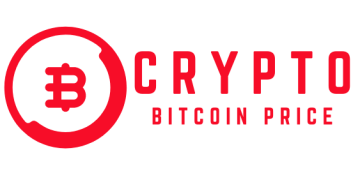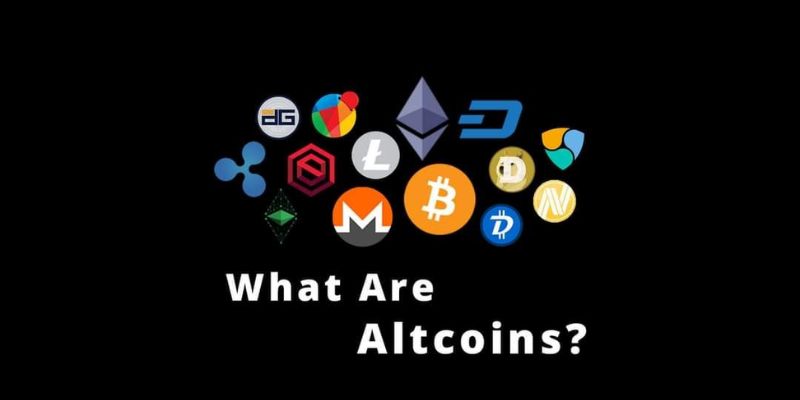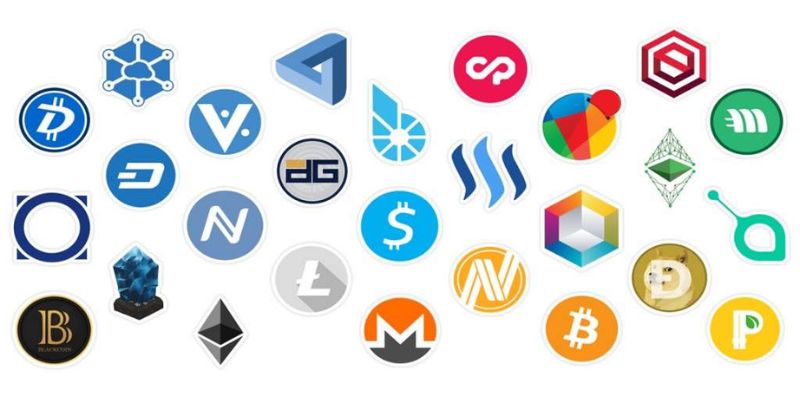So, you’ve heard of Bitcoin, but what is an altcoin? Let me guide you through the bustling world of crypto’s unsung heroes. Altcoins are more than just Bitcoin’s understudies; they’re pioneering a path with bold features and innovations. In this quest to understand altcoins, we’ll compare these digital challengers to their famous sibling, Bitcoin, and spell out their distinct traits. Grab your virtual space gear; we’re about to launch into the altcoin universe where new stars are forming every day and each one dances to its own digital tune. If you think crypto is just about Bitcoin, prepare to be amazed by the diversity and potential that altcoins add to the mix!
Exploring the Altcoin Universe: Beyond Bitcoin
Defining Altcoins and Their Unique Features
What is an altcoin? An altcoin is any digital currency that’s not Bitcoin. They have new features and capabilities. We see all sorts of cool tech in altcoins. They have smarter ways to record deals and move money. Groups behind each altcoin work to make them special. These features can make altcoins very useful in ways Bitcoin isn’t.
Altcoins include Litecoin, Ripple, and many more. Each one uses blockchain technology. But they change the rules or add new tools to stand out. Some altcoins let you do things in secret. Others focus on being used in apps or for creating contracts that run themselves.
Bitcoin vs Altcoins: Understanding the Key Differences
How do Bitcoin and altcoins differ? Bitcoin was the first, so it’s the most famous and has the most money in it. But altcoins come with changes and improvements. They can work faster or cost less to use. They can also use less power or give you more privacy.
When investing in digital currencies, knowing these differences is key. Ethereum is a big name. It’s not just money; it lets people create apps that run on blockchain. This means anyone, anywhere, can use the apps without a middleman.
While Bitcoin is like gold, altcoins can be like tools. Each one does something Bitcoin doesn’t. They might help money move in a flash. They might be tied to the US dollar to stay stable. Or they can help you vote on how an altcoin should improve.
Choosing to trade or mine altcoins can be exciting but tricky. You need the right wallet and exchange to keep them safe. Predicting their prices and following trends can help you make smart moves. The altcoin market is wild, with new stars rising and falling fast.
Understanding crypto assets helps you see the big picture. Whether it’s a privacy coin or a DeFi token, each has its market capitalization. This tells us how much money is in them. And when it’s altcoin season, many may surge in value.
In the end, altcoins are full of surprises. They’re more than just clones of Bitcoin. They try out new ideas. Some might fail, but others could change how we use money forever. The next time you look at your digital wallet, think of the possibilities. These altcoins are not just money – they’re a peek into the future of finance.
The Backbone of Altcoins: Blockchain Innovations
Delving into Ethereum: More Than Just a Digital Currency
Welcome to the cool world of altcoins. You know Bitcoin, right? Well, there are thousands of other coins out there. They’re called altcoins. Like different kinds of cars—each with special features. Let’s talk about Ethereum, a star in the crypto space. Ethereum is an altcoin filled with magic tricks. But it’s way more than just money. It lets you make deals without the middleman. Think of it like a vending machine. You put in money, pick your snack, and there you go—no need to chat with the store guy.
Ethereum uses something fancy called blockchain technology. This is the secret sauce to many altcoins. It’s a list of all the deals that get copied onto many computers. So, it’s super hard to cheat. Now, Ethereum’s special trick is called smart contracts. These are like deals in code that run themselves when the right stuff happens. No more waiting for people to do their part. Very smart!
Smart Contract Platforms and Scalability Solutions
Now, let’s dig into smart contract platforms. They’re like play areas where you can build and run your own smart contracts. You’ve got your rules, and they make sure everyone plays fair. Smart contracts are like the glue that holds everything together in these play areas. Ethereum started it, but now there are heaps of new kids on the block. All doing cool, different stuff.
I bet you’re thinking, “Wait, but what if too many people come to play?” Good question! That’s where scalability solutions come in. It’s like having a playground big enough for everyone. No more long lines to the slide. One solution is called sharding. Imagine breaking the playground into smaller pieces, so kids have more room to play.
And there’s more! We’ve got these things called masternodes. They work like playground monitors, checking that kids are following the rules. They get a little treat for helping out.
In the end, each altcoin has its own twist. They can be for speed, privacy, or doing specific jobs. Some are called utility tokens because they help you use a service. And some are like shares in a company, called security tokens. When you hear “tokenomics,” think of it as how these coins or tokens live and grow.
When you’re picking an altcoin, think about what you like. Do you want fast transactions? Do you care about privacy? Always remember to play it safe, as this game can be risky. There are lots of altcoin wallets and exchanges where you can trade. Just make sure to get one that’s easy for you and secure.
So, isn’t it amazing? All these altcoins dancing around Ethereum, doing their thing. They keep everything from getting boring. Always new stuff to see and new games to play. Keep your eyes on them; altcoin seasons can be quite the show!
Investing with Caution: Altcoin Markets and Strategies
Assessing the Risks and Rewards: A Primer for New Investors
When you dive into altcoins, you play a thrilling game. Here’s a hot tip: Know the risks and how big the rewards can be. Think of altcoin investing like exploring a jungle. It’s wild and full of rare treasures, but you could also get lost. So how do you start? First, learn about the altcoins. There are a lot of cryptocurrency types, but they’re not all the same.
Bitcoin started it all, but altcoins bring more to the table. Ethereum is a star among altcoins. It lets people make smart deals that do their own work. It’s one of the top altcoins and has huge market capitalization. But there are others like Litecoin, Ripple, and Cardano, popping up with fresh ideas.
Each altcoin has a job. Some are for privacy, keeping you off the radar. Others are DeFi tokens, changing how we deal with money without needing banks. And there are utility tokens and security tokens – they’re like passes to a show or a piece of the company.
What about making money? Altcoin trading is key. Buy and sell at the right time, and you’re golden. But it’s tricky. You must keep an eye on altcoin price prediction and trends. Want to dig deeper? Mining altcoins could be your thing. But remember, it’s not a quick win. It takes work and smarts.
Crypto Investment Strategies: Finding Your Path in Altcoin Diversification
Building a strong altcoin collection is essential. Don’t put all your eggs in one basket. Spread them out. Diversify. That’s a smart crypto investment strategy. Mix different types of altcoins. Think about market cap – not just big names. And look at how new tech like proof of work and proof of stake secures the network.
But wait – what’s the best way to keep your altcoins safe? You’ll need an altcoin wallet. And when you’re ready to trade, choose the right altcoin exchange with care.
The market breathes like a living thing – it goes up and down. Timing is everything in the altcoin season. And let’s say a word on initial coin offerings (ICOs). Imagine being one of the first to grab a new altcoin, full of potential. That could be a jackpot or a slip. Watch out for scams though.
Understanding tokenomics and altcoin regulations is a must. This can guide you to make wise picks. Watch for news on privacy coins, utility tokens vs. security tokens, and new kids like Cardano. Reading about blockchain technology might seem tough. But it’s really the heart of the whole crypto world.
Finally, remember the law of the jungle. Be sharp. Keep learning. Because in the altcoin realm, knowledge isn’t just power, it’s profit. And that’s how you play the game smartly, friend.
Staying Ahead: Recognizing Trends and Predictions in Altcoins
Foreseeing Altcoin Price Trends: Analyzing Market Movements
In the buzzing world of altcoins, prices can go up or down fast. You might ask, “How can I tell where altcoin prices will go?” Here’s the truth: no magic ball can show us the future. But we can look at how many people want an altcoin and how many altcoins are out there. The more people who want it, and the less there is, the higher the price can climb.
Understanding crypto assets means knowing why prices change. News, tech changes, and new laws can make or break altcoin prices. Smart traders keep a close eye on these things. They also look at patterns in price charts—this helps them guess where prices might go next.
Market capitalization of altcoins is a big clue, too. It shows how much money is in an altcoin market. We weigh an altcoin’s total supply and its current price. This tells us if an altcoin is small like a mouse or big like an elephant in the room.
Investing in digital currencies needs smart moves. So, knowing these clues can put you ahead in the game.
The Rise of New Players: Spotlight on Cardano, DeFi Tokens, and More
Now, let’s shine a light on some fresh stars in the altcoin sky. Have you heard of Cardano? It’s an altcoin that wants to make digital cash work for everyone. It’s not just about being fast; it’s about playing fair and being safe. Smart contract platforms are like super tools that let people do deals without a middleman.
Then there’s DeFi tokens. These little champs are shaking up how we bank. They let anyone lend, borrow, and earn interest on their cash without a traditional bank. It’s like giving power back to the people!
Crypto isn’t just about making money. We have privacy coins that keep your business your own, and utility tokens that let you use services like you would in an arcade. It’s important to know the different cryptocurrency types, from Litecoin’s speed to Ripple’s knack for moving money around the world cheaply.
Remember, the altcoin world is full of stories of both winning and losing big time. So, when you think about altcoin trading, put your thinking cap on. Picking the right altcoin wallets and exchanges is like choosing the best gear for a climb. You’ll want something safe and trustworthy.
Wondering about popular altcoins in 2023? Keep an ear to the ground and watch how the crowd moves. You can spot an altcoin season—when many altcoins grow at once. Sometimes, one like Ethereum can get really popular and take a big slice of the market pie.
Knowing about altcoin trends isn’t just cool; it can help you make smart choices. The crypto world keeps spinning, and new ideas keep coming. From proof of work to proof of stake, things are always changing.
Listening to stories about Cardano and new altcoins can teach us lots. So can watching DeFi tokens blossom. Use this knowledge. You just might find some crypto treasures out there!
In this post, we’ve dug deep into altcoins, their features, and how they stand out from Bitcoin. We’ve looked at the tech behind them, especially Ethereum’s role and smart contract platforms. For those keen on investing, we shared how to weigh risks and rewards and strategies for diversifying your crypto portfolio. Plus, we peeked at what’s ahead for altcoins, including Cardano and DeFi tokens.
My final thought? Altcoins offer exciting possibilities but need careful thought before diving in. Stay smart, stay informed, and you might just find your place in this ever-evolving crypto world. Remember, knowledge is your best investment in the altcoin universe. Invest wisely!
Q&A :
What Exactly Is An Altcoin?
Altcoins, or “alternative coins,” are cryptocurrencies that emerged after the success of Bitcoin. They present themselves as better substitutes to Bitcoin with various improvements and additional features, such as improved transaction speeds, privacy enhancements, or differing consensus mechanisms like proof-of-stake.
How Do Altcoins Differ From Bitcoin?
Altcoins may differ from Bitcoin in several ways. Some have different economic models, others use different mining algorithms, and many aim to provide more versatile programming platforms. Each altcoin comes with its unique propositions and purposes, hoping to improve or offer an alternative to the services that Bitcoin provides.
Are Altcoins A Good Investment?
Like any investment, altcoins carry their own risks and potential rewards. Some investors consider them to be a good investment due to their lower price points and potential for substantial growth. However, they are typically more volatile than Bitcoin, and their success can depend on factors such as adoption, market sentiment, and technological advancements.
Which Altcoins Are The Most Popular?
Several altcoins have gained popularity within the cryptocurrency community. Ethereum, Ripple (XRP), Litecoin, and Cardano are often cited as some of the most traded and widely recognized altcoins. These coins have substantial market capitalizations and have established themselves as significant players in the crypto market.
Can Altcoins Be Used Like Regular Currency?
Many altcoins aim to be used for day-to-day transactions just like regular fiat currency. While some are making headway in achieving this goal, market volatility, regulatory issues, and varying levels of acceptance limit their use as a mainstream means of payment. However, as the cryptocurrency marketplace evolves, more vendors and services are beginning to accept altcoins as a form of payment.





